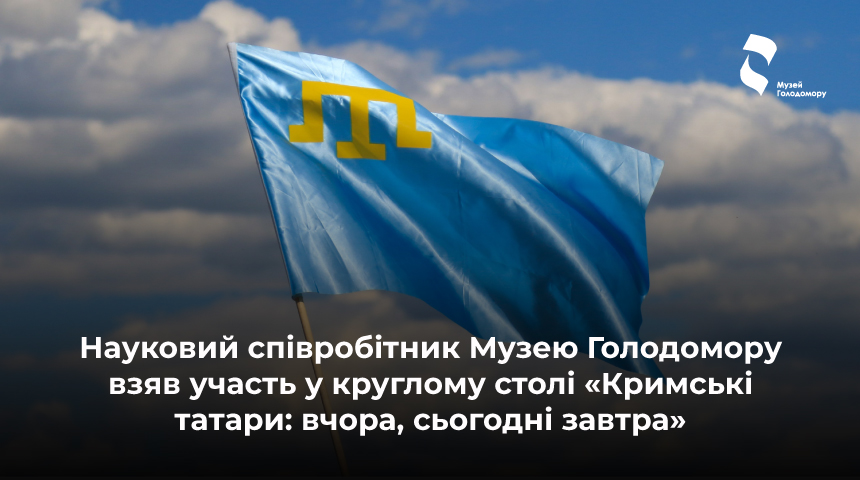An employee of the Holodomor Museum took part in the round table at KNU “Crimean Tatars: Yesterday, Today, Tomorrow”
On July 6, the leading researcher of the National Museum of the Holodomor-genocide, candidate of historical sciences, Andrii Ivanets, participated in the round table “Crimean Tatars: Yesterday, Today, Tomorrow” held at Taras Shevchenko Kyiv National University.
The event was organized by the Department of New and Recent History of Foreign Countries and the History Research Centre of the Turkish and Crimean Tatar Peoples of the Faculty of History of Taras Shevchenko Kyiv National University.
Representatives of the national self-government bodies of the Crimean Tatar people, scholars, museum workers and students took part in the round table.
Refat Chubarov, a chairman of the Mejlis of the Crimean Tatar People, Elvin Kadyrov, the head of the Centre for humanitarian issues of the Mejlis of the Crimean Tatar People, Oleh Kupchyk, the head of the research centre for the History of the Turkish and Crimean Tatar peoples, Vitaly Masnenko, the head of the Department of History of Ukraine of the Cherkasy National University named after B. Khmelnytsky, Yaroslav Pylypchuk, a doctor of historical sciences, associate professor of the Ukrainian State University named after M.P. Drahomanova, and A. Ivanets, spoke at the event.
The participants of the round table discussed the issue of the institutional history of the Crimean Tatar national movement in the light of the sources, the use of oral history to record the participation of the Crimean Tatars in the Russian-Ukrainian war, the issue of the national aspirations of the Crimean Tatars and the teaching of the history of the indigenous people in the educational process in universities.
The leading researcher of the Holodomor Museum, Andrii Ivanets, in particular, noted the improvement of the situation with the teaching of the history of the Crimean Tatar People, which suffered genocide, in schools of Ukraine (inclusion of topics on the history of the indigenous people in the curricula, questions on it in external examinations, etc., publication of a textbook on the history of the Crimean Tatars and some other books), but drew attention to the problem of training personnel to teach social science disciplines for schools in Crimea after its de-occupation. Regretfully, a significant part of the teachers in Crimea is included in the indoctrination of children with the ideology of rashism and the militarization of education, therefore, professional personnel should be trained to objectively teach history and some other disciplines of a humanitarian profile to Crimean children after the liberation of southern Ukraine.
The head of the Mejlis of the Crimean Tatar People, R. Chubarov, thanked A. Ivanets for his published works on the history of the Crimean Tatar People.
